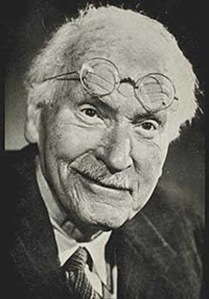Last night’s lecture was on Jungian personality typology part 2.
Intuitive (extroverted) – These types can feel imprisoned and trapped and are lacking in commitment. Thinking and feeling (auxiliary functions) are repressed. Fully repressed is sensation. This type gives priority to the vision rather than the reality on the ground. They can be immoral and can be perceived by others as inconsiderate. They are speculators, entrepreneurial, traders, publishers or art dealers. They can be paranoid, phobic and superstitious. Howard Hughes was supposed to have been this type. It can feel like depression but this won’t react to medication.
Intuitive (introverted) – This type can see the big picture but their attention is turned within. They are stimulated by the sensate function. They can run from one image to another but nothing quite satisfies. They are constantly looking for the buzz of new relationships. The images which get expressed are often archetypal. They are creative and artistic. Van Gough was considered this type. Images need releasing, not the feelings. They can be viewed as aloof, cool, calm and collected (as their inner life is taking precedence). Extroverted sensation is most repressed. They can be gurus but they get into trouble over money and sex. An approach in therapy with this type is to help them with artistic expression. they are not a good witness in court.
Sensate (extroverted) – The primary orientation with this type is towards objective reality. They pursue pleasure. They are the type that would make a good witness in court. They make good managers and know how to make money. They can be prone to phobias and can also become paranoid. Intuition is repressed (subjective realm). The approach with this type would be to get them to think, work out consequences and to “feel”. These types are always busy and feel like they need to press “reset” in order to get clarity. They can suffer from extreme OCD.
Sensate (introverted) – these types are primarily governed by subjective response to what is outwardly perceived. These types seek inner intensity from sex, drugs or dangerous sports. They can be patient types, and have an ability to be with people, they are carers, healers, and are good with children. But they are not worldly.
The important thing to remember is that most of us are carrying these types in us but the work is to decide what our preference is and what are the functions.
Topics related to Jung
- jung quotes
- george jung
- jung online
- jung knx
- jung personality types
- jung personality test
- carl jung theory
- jung theory
- carl gustav jung theories
- carl jung collective unconscious
- archetypes carl jung
- carl jung psychology
- carl jung personality types
- carl jung quotes
- carl jung personality test
- dr carl jung

Whether you’re a young adult trying to find your place in the world, or a not-so-young adult trying to find out if you’re moving along the right path, it’s important to understand yourself and the personality traits which will impact your likeliness to succeed or fail at various careers. It’s equally important to understand what is really important to you. When armed with an understanding of your strengths and weaknesses, and an awareness of what you truly value, you are in an excellent position to pick a career which you will find rewarding.
INFPs generally have the following traits:
Strong value systems
Warmly interested in people
Service-oriented, usually putting the needs of others above their own
Loyal and devoted to people and causes
Future-oriented
Growth-oriented; always want to be growing in a positive direction
Creative and inspirational
Flexible and laid-back, unless a ruling principle is violated
Sensitive and complex
Dislike dealing with details and routine work
Original and individualistic – “out of the mainstream”
Excellent written communication skills
Prefer to work alone, and may have problems working on teams
Value deep and authentic relationships
Want to be seen and appreciated for who they are
The INFP is a special, sensitive individual who needs a career which is more than a job. The INFP needs to feel that everything they do in their lives is in accordance with their strongly-felt value systems, and is moving them and/or others in a positive, growth-oriented direction. They are driven to do something meaningful and purposeful with their lives. The INFP will be happiest in careers which allow them to live their daily lives in accordance with their values, and which work towards the greater good of humanity. It’s worth mentioning that nearly all of the truly great writers in the world have been INFPs.
The following list of professions is built on our impressions of careers which would be especially suitable for an INFP. It is meant to be a starting place, rather than an exhaustive list. There are no guarantees that any or all of the careers listed here would be appropriate for you, or that your best career match is among those listed.
Possible Career Paths for the INFP:
Writers
Counselors / Social Workers
Teachers / Professors
Psychologists
Psychiatrists
Musicians
Clergy / Religious Workers
Pingback: My Homepage